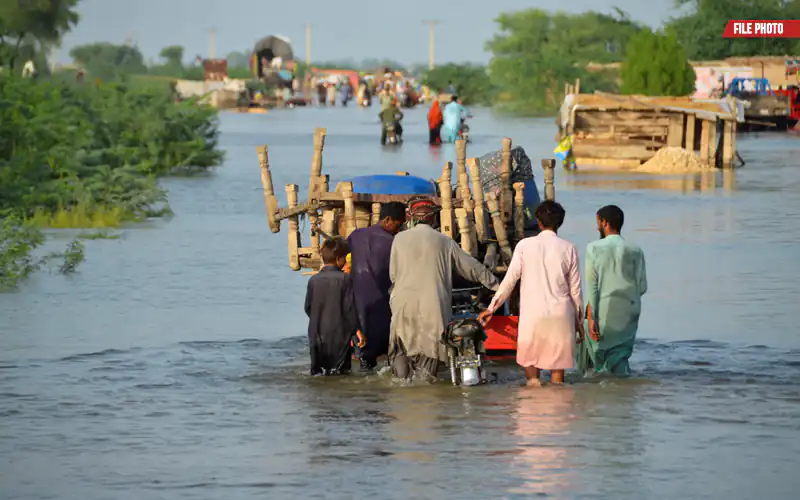A groundbreaking study published in the prestigious journal Nature warns that the kind of catastrophic flooding seen in 2022 may become the “new normal” for Pakistan.
The researchers attribute this rising threat to a dangerous mix of extreme rainfall, accelerated snowmelt, and unplanned human development along floodplains.
The 2022 floods, which submerged vast swathes of Sindh and Balochistan, are cited as a turning point – not an anomaly but a forewarning of increasingly frequent and severe flood events.
According to the study, between 1950 and 2012, Pakistan’s Indus Plain witnessed 19 major flood disasters, but nearly half of those occurred after 2000, revealing a sharp upward trend in recent decades.
The authors, Dr. Ali Mirchi and Dr. Arfan Arshad, describe the 2022 flood as the result of “compounding climatic and anthropogenic factors.”
Pre-monsoon rainfall was 111 percent higher than average, and monsoon precipitation in Sindh reached up to 1800mm – several times the historic norm.
When combined with rain-on-snow events and warmer temperatures triggering early snowmelt, rivers like the Indus swelled to record levels. At Sukkur Barrage, for example, streamflow surged 170% above the long-term average in August 2022.
But it’s not just the weather. The study also highlights the human role in worsening floods. Urban sprawl and cropland expansion into riverbanks — especially in areas like Larkana — have dramatically increased vulnerability. Intensive farming and housing in flood-prone zones now leave millions exposed to even moderate floods.
Projections for the future are even more concerning. Under high-emission scenarios, southern Pakistan could see 5-day rainfall events increase in strength and frequency by up to 58% by the end of the century. Single-day rainfall extremes may jump 44%, surpassing the capacity of existing drainage and flood management systems.
However, the study also offers a roadmap for resilience. Recommendations include restoring natural floodplains, halting construction along rivers, upgrading urban drainage, and adopting smarter land-use planning. “Pakistan can’t stop global warming alone,” the researchers note, “but local adaptation efforts can save lives and reduce damage.”
They also stress the urgent need to modernize early warning systems and bolster community preparedness. Without such steps, the devastating floods of 2022 may prove to be only a prelude.










